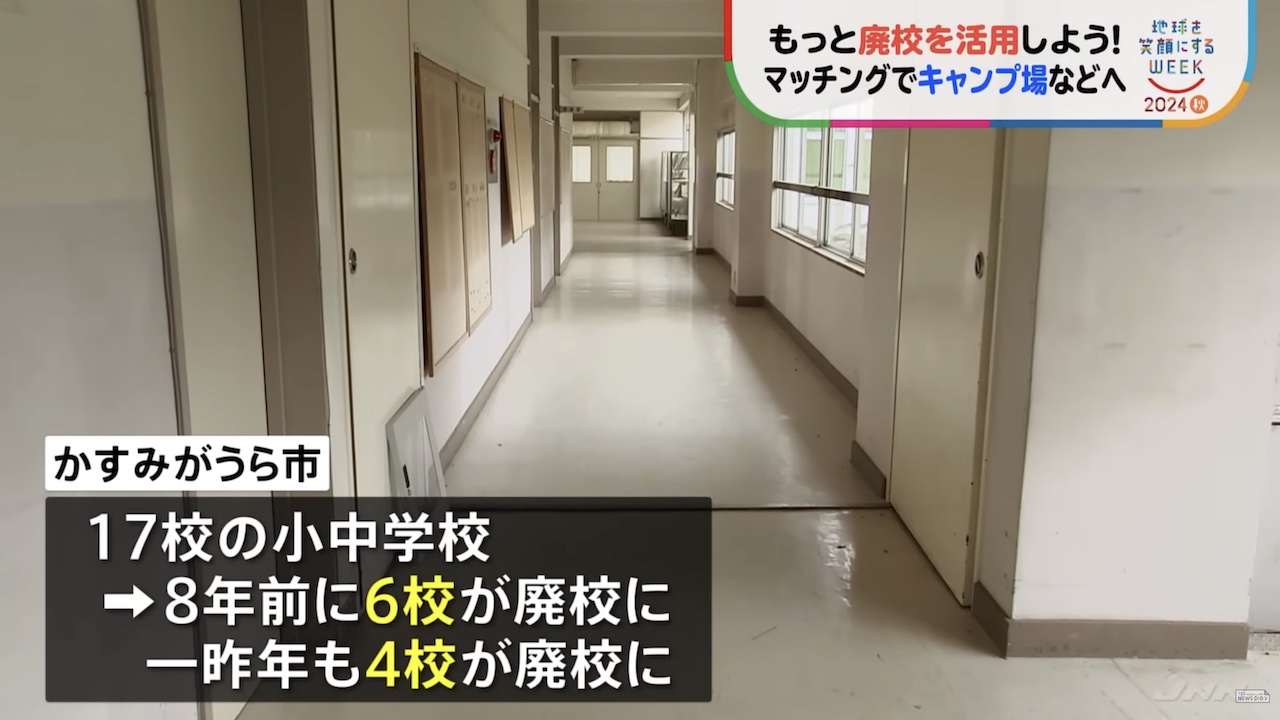TOKYO, Nov 05 (News On Japan) - In recent years, approximately 450 schools close annually in Japan, with around 20% left unused. These unused schools face potential demolition as maintenance becomes unsustainable, prompting a response from the Ministry of Education, which has launched matching sites and events to promote new uses.
The trend is evident in Kasumigaura City, Ibaraki Prefecture, about a 1.5-hour drive from Tokyo. Here, declining birth rates have led to school closures, with six out of seventeen schools closing eight years ago, followed by another four closures two years ago.
Kasumigaura City Property Supervisor Tsuge Toshinori remarked on the challenges, noting, “Maintaining each school costs roughly one million yen annually, including fees for security, water, utilities, and contracting weed control services.”
Nationally, the Ministry of Education has initiated various efforts to repurpose these facilities. It has created a matching website and hosts events pairing municipalities with private companies to find sustainable uses for former school properties.
A local government official at a matching event said, “There aren’t many properties with a sea view right out front.”
One business representative added, “We want to create a ‘future playground,’” while another expressed interest in “revitalizing the area through learning activities.”
In Kasumigaura City, successful matches have already taken place. The former Saga Elementary School, for instance, is now leased to a campsite operator for one million yen per year.
A visitor shared, “It’s unique to be able to camp in a former schoolyard.”
Another staff member noted, “People often comment on how nostalgic it is—seeing the blackboards, the small chairs. It feels wasteful when places filled with memories like the school I attended are left to deteriorate.”
The city has also leased out a former school to a construction equipment manufacturer for research and development purposes at 2.64 million yen annually. Renovations are underway, with the site set to open next spring.
A Hitachi Construction Machinery representative stated, “We aim to retain as much of the school’s original character as possible for long-term use.”
In addition, four former schools in Kasumigaura City have been transformed into public facilities, including community centers. However, despite these efforts, three schools in the city remain closed. Nationwide, approximately 20% of closed schools are still left unused, with some ultimately facing demolition due to inadequate maintenance.
Kasumigaura City Property Supervisor Tsuge commented, “It’s truly a shame.”
Efforts to find new uses for these buildings through public-private partnerships continue across the country.
Source: TBS
















